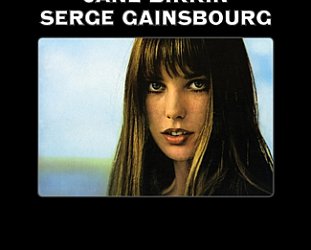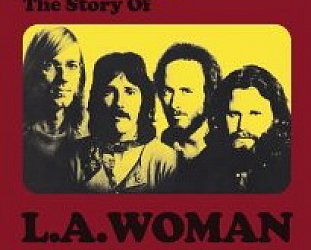Graham Reid | | 2 min read
Hearts Don't Keep

No one could accuse Matthew Bannister of lallygagging around.
His resume includes albums with Sneaky Feelings, The Dribbling Darts of Love, The Changing Same, The Weather, releases as One Man Bannister and under his own name, a couple of books (his memoir of his Flying Nun days and an analysis of the album Songs from the Front Lawn), various academic papers . . .
Much of this in addition to studying for his PhD then having a day job as a senior academic/researcher at Wintec in Hamilton.
Now in his early 60s, he looks to the past on this album which includes new songs and some older ones which fit the reflective theme and consequently bind the album together in the then and now.
That much is evident with a passing glance at the song titles: In the Beginning, Time is Passing, Bad Time, Space and Time, What's So Good About the 60's?, Best is Yet to Come and, poignantly towards the end, Meet My Maker.
And the cover which, I believe, is a photo of the Glasgow street he grew up on.
Bannister in an unashamed fan – and creator – of pop music of the kind which came to fruition in the Sixties (his two albums covering the Beatles Rubber Soul and Revolver are well worth seeking out) so these songs – rock, pop, ballads, folk, lightlydelic pop – are focused, have sharp melodies and choruses, and mostly get in and out in under three minutes.
That's a craft in itself and something as clever and catchy as History Train – which conflates imagery of train and album tracks, his childhood trainspotter obsession with trains then music – suggests a deep admiration for Ray Davies, Andy (XTC) Partridge and other reflective, observational writers.
And neatly appropriate referencing in “just picture yourself on a ticket to ride . . . you've heard it all before, that's the way you like it”.
Bannister is in a philosophical mood here: on the folksy If It Happens (“there is a time and place for all things . . . everything changes but nothing is new”); Hearts Don't Keep (“you have to use them right away”); the space-pop of Space and Time exploring the dichotomy of measuring time externally through minutes and days compared with the inner life where (as on the jaunty satirical bite of What's So Good About the 60's? also) the past lives within us in the present.
Bannister also writes straightforward and memorable pop here: the jangle of The Best is Yet to Come; the downbeat Meet My Maker (“lived with my burden long enough”); the upbeat closer Thank Them which works the metaphor of life as a performance, “put on a show and let them all know, thank them for coming around . . . wonderful to be here”.
If Bannister's voice has sometimes sounded thin on solo albums in the past, that fragility suits many of these songs given the theme and – as he proved with his reconsiderations of Rubber Soul and Revolver's songs – he has in his grasp diverse genres which means each of these songs has a discrete character.
Matthew Bannister's musical reference points have most often been in the Sixties -- be it pop, folk or rock – and here he taps that bottomless well for songs which sound immediately familiar.
No doubt that's the way he likes it because although everything changes nothing is new.
.
You can hear and buy this album is available from bandcamp here
.
Matthew Bannister and the Changing Same tour
Moon, Wellington March 1; Nivara, Hamilton March 15; Cupid, Auckland March 22





post a comment